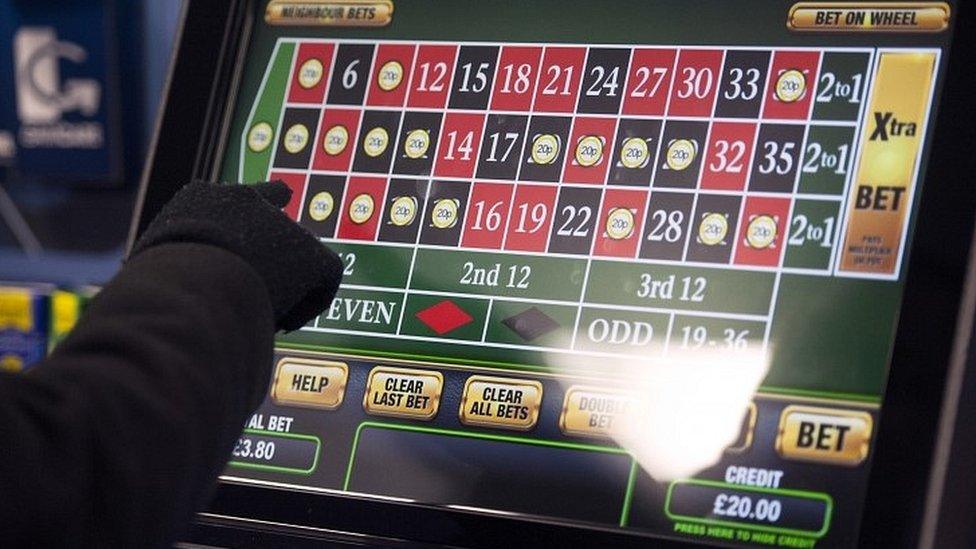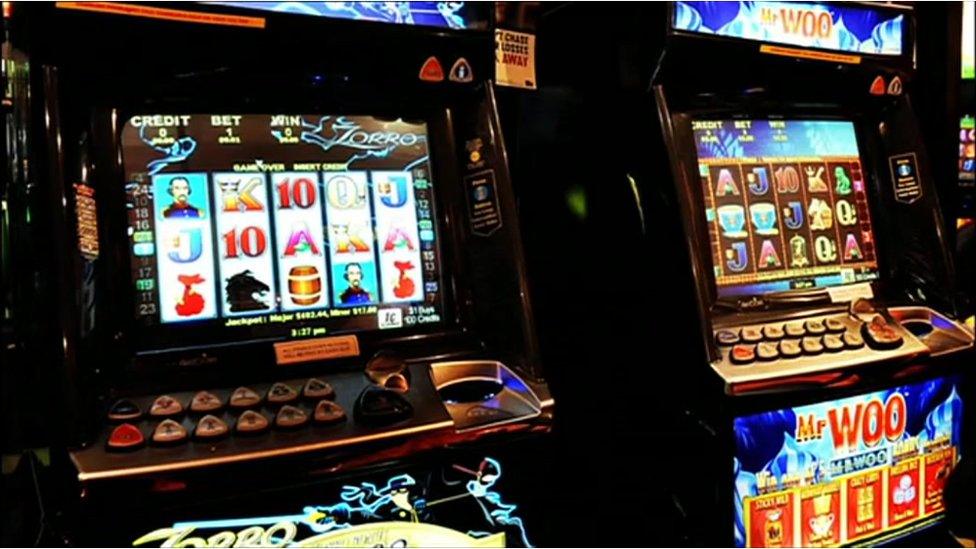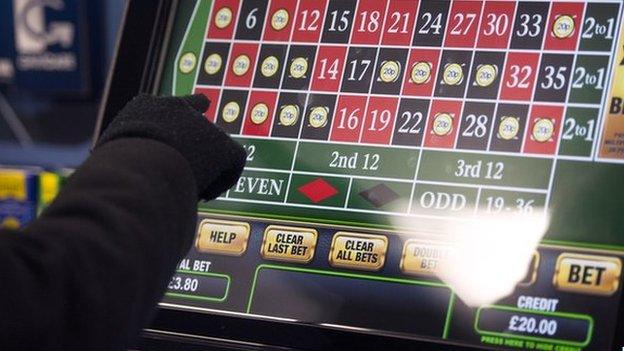Power to ban fixed-odds betting terminals could be devolved
- Published

Fixed odds betting terminals (FOBTs) have become a common sight in bookmakers' shops.
The UK government has agreed to consider giving Wales the power to ban fixed-odds betting terminals.
Wales Office Minister Lord Bourne said he will look at the issue again after protests in the House of Lords.
Gambling is currently reserved to Westminster, although responsibility for high-stakes machines is being devolved to Scotland.
Labour peer and AM Baroness Morgan tabled an amendment to the Wales Bill to give Wales responsibility over them.
Baroness Morgan told the Lords in November the high stakes machines create "vast social problems"
"Many, often vulnerable, people are attracted by the prospect of high payouts of up to £500," she said.
"Evidence suggests that these machines are highly addictive, causing real and lasting damage to gamblers.
"They have become a huge problem in communities that are often struggling to cope with under-investment and high unemployment, exacerbating the problem of gambling more than any other former of betting."
Lord Bourne told her he would look at the issue and reflect on it.
He said the UK government had not considered the issue as it did not feature in the report of the Silk Commission, external on devolution and therefore was not discussed during the St David's Day process on future devolution.
Wales Office Minister Lord Bourne says he will look at the issue again.

Fixed-odds betting terminals
also known as FOBTs or B2 gaming machines
touch screen electronic gaming machines found in betting shops across the United Kingdom
customers can play casino games such as roulette, poker and Black Jack, and electronic slot games and virtual racing
maximum stake is £100, though the industry voluntarily introduced a £50 limit unless a gambler asks to stake more
maximum prize money is £500
- Published24 October 2016

- Published12 October 2016

- Published13 June 2016
